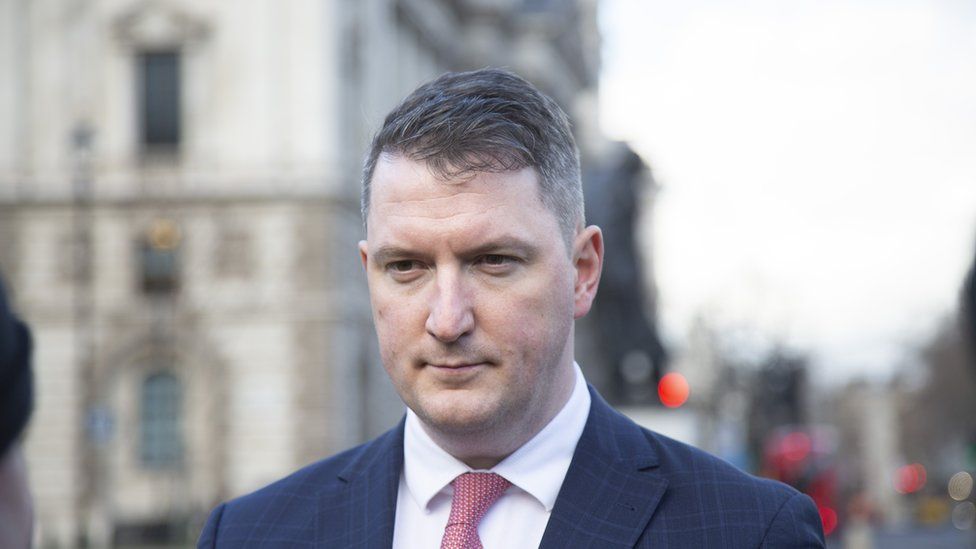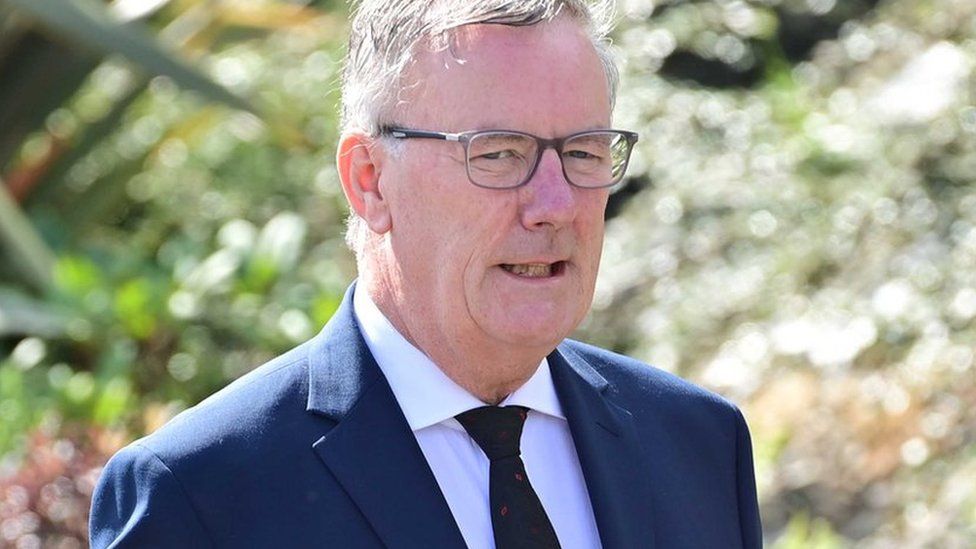Census 2021: Politicians react to latest Northern Ireland results
Northern Irish #NorthernIrish

Image caption,
The latest census was published on Thursday
Politicians have been reacting to census figures which show there are more people from a Catholic background in Northern Ireland than Protestant for the first time.
The proportion of the resident population which is either Catholic or brought up Catholic is 45.7% compared to 43.48% Protestant.
In terms of national identity, 31.9% said they had a British-only identity, while 29.1% said Irish-only.
A further 19.8% said they are Northern Irish-only.
Census figures detailing the religious make-up of Northern Ireland were published by the Northern Ireland Statistics and Research Agency (Nisra) on Thursday.
![]()
John Finucane MP, Sinn Féin

Image source, Anadolu Agency/Getty Images
North Belfast MP John Finucane said the results of the 2021 Census results show “historic change is happening”.
“There is no doubt change is under way and irreversible. How that change is shaped moving forward requires maturity to take the challenges which face our society,” he said.
“We can all be part of shaping a better future; a new constitutional future and a new Ireland.”
Mr Finucane called on the Irish government to create a citizens’ assembly to plan for a possible unity referendum.
“The partition of Ireland has been a failure. We can build a better future together, for every person who lives on this island.”
![]()
Phillip Brett MLA, Democratic Unionist Party (DUP)
Mr Brett said the key challenge that faces political leaders in the wake of the latest round of census results is to making “all minorities feel comfortable” in Northern Ireland.
“For some considerable time, there has been clear recognition that Northern Ireland is made up of many minorities – Roman Catholic, Protestant and those who don’t identify as anything,” he told BBC Radio Ulster’s Talkback programme.
Mr Brett added that it was vital to ensure that there was a consensus on how people can move forward together.
“The Northern Ireland that I have grown up in, it’s been made up of people from all backgrounds and traditions,” he said.
“The key for all political leaders is that we are reflective of that society and that we can come to accommodate, regardless of people’s religious views and political persuasions, that they feel comfortable in this place that we call home.”
![]()
Nuala McAllister MLA, Alliance

Image source, Pacemaker
The results of the census show the importance of a shared future, Alliance’s Nuala McAllister said.
“The growth of Alliance in the last election is testament to the fact that religion doesn’t necessarily determine political opinion and it is important to highlight that, especially when we are seeing headlines of Catholics outnumbering protestants,” she told Talkback.
“One thing that actually quite excites me coming from an atheist background – I grew up in a Catholic area, my partner grew up in a Protestant area, we are both atheists, we don’t conform to religion – is the growth of those from a non-religious background and the one thing I would like to see in the future is the removal of that second question.”
Ms McAllister described the figures on ethnic minorities as a “small number but quite significant”.
![]()
Mike Nesbitt MLA, Ulster Unionist Party (UUP)

Image source, Pacemaker
Strangford MLA Mike Nesbitt called Northern Ireland a “changing and modern pluralist society” following the latest round of census results.
“Our initial assessment is that the evidence vindicates the stance taken by the Ulster Unionist Party since 1998, recognising that we need to build a Northern Ireland in which everyone has a stake and can see a future for themselves and their families,” he said.
Mr Nesbitt said that the party was confident the union offers the best future for people, and the task now was to continue making the case.
“Whilst much of the focus will be on the religious headcount, it has been obvious for many decades that not all Catholics are nationalists or republicans, and not all Protestants vote for unionist parties,” he said.
“The situation regarding identity and nationality is more complex than some like to portray and the Ulster Unionist Party is focused on increasing the number of people who support and vote for the union, regardless of religious affiliation or background. That is the challenge for the future.”
![]()
Colum Eastwood, Social Democratic and Labour Party (SDLP) leader
The SDLP leader said the census figures show a “seminal moment” in the history of modern Ireland and that Northern Ireland has “been transformed utterly 100 years on from partition”.
“It is the challenge of this generation to forge a new future,” said Colum Eastwood.
“Today’s results show the scale of change that is possible. We have to grasp the opportunity together.”
He also called it a “moment of true change” and that the result’s significance should not be downplayed, diminished out of fear or insincere politicking.
“It is my honest hope that we can all now take a moment of serious and sincere reflection about the scale of change we have experienced and commit to a conversation about the powerful potential for change in the future.”
![]()
Jim Allister, Traditional Unionist Party (TUV) leader
The TUV leader said that while there are more people identifying as being from a Catholic background, the nationalist vote is “almost identical” to the first Assembly election in 1998.
“The fact that the Catholic population in Northern Ireland has flourished presents a telling contrast with the near extinction of the Protestant population in the Republic,” said Jim Allister.
“Those who make a read across from the Catholic population to support for Irish unity demonstrate for them just how sectarian that project is.
“The union is a union with benefits for all, ranging from free medical care to financial wherewithal when it comes to Covid or energy crisis assistance.”